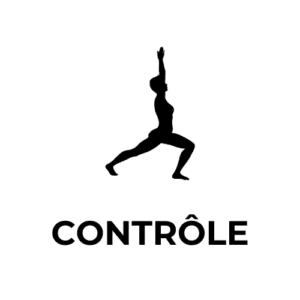Yoga Sutra
Yoga sutra I.1: atha-yoganusasanam

This first sutra places yoga in the philosophical category “ anusanam ", that is to say the category of experience. It is therefore not a question of theories to ruminate on, but of something to live.
But what is the experience to which Patanjali dedicates this work so detailed and profound? It is not a physical experience, since only three of the one hundred and ninety-five aphorisms deal with postures.
It seems urgent to me to rediscover the meaning of this experience, because yoga can be considered a vital tool in the current context of generalized crisis. It is clear that we are not reaching our full human or spiritual potential, and the consequences weigh on us individually and collectively. The outside world seems to reflect our imbalance interior.
The experience evoked by Patanjali is the experience of ourselves. It is an invitation to rediscover our consciousness, to rediscover our intuition and to realize that it is possible to live other than through our fears and our illusory limitations.
However, reuniting with oneself is not easy, as we are so anchored in the animal functioning of the need to survive. Patanjali invites us to return to the present, and he provides us with a multitude of tools for this purpose physical, respiratory and mental.
Sutra I.3 tada drastuh svarupe avasthanam

“ When the mind is under control, the true nature of consciousness is revealed » The choice of yoga techniques is so vast that it is easy to get lost. We quickly forget that posture, for example, is not an end in itself but a means: a means of calming the mind, and finally being able to direct it towards something essential.
But what is this essential towards which we can now move? Consciousness ? God ? Love?
In the first chapter of the yoga sutras, Patanjali dwells on a tool to which he attaches great importance: the fact of surrendering to the divine. The divine, yes, but it’s not just any divinity! Isvara is defined by his three qualities: his actions are not influenced by attachment to the result, he is the origin and source of everything, and it is not limited by time.
Sutra I.23 Isvara pranidhanadva: “Surrender fully without distraction to Isvara”

But this surrender proves difficult when our attention, energy and emotions are totally focused on survival. In our usual state, we cling as best we can to any relationship, to any situation that promotes survival, and the result is a inner disconnection source of emotional conflicts and confusion, leaving little room for anything else. With all the good will in the world, we cannot abandon ourselves to what is essential if there is no longer room within us.
Yoga tools help soothe the body, emotions and mind. Once all these disturbances are removed, there remains one essential thing: You, in all “divinity”.
We don't look for the essential in yoga, we simply give it room.
Related posts
Anti-Stress Yoga: How to reduce stress in 21 days?
Being late, dealing with unexpected events, having to answer a phone that never stops ringing... In our modern life, there are many events that can cause stress. You certainly want to know the secrets of yoga masters to reduce stress. Can yoga really reduce that stress that prevents you […]
Yoga and emotional health: overcoming the identity crisis
According to yoga philosophy, the greatest challenge for human beings is to confront their own identity crisis. Do we know each others ? Our impoverished relationships with ourselves are characterized by a lack of listening, abandonment and respect for our intuition. Our real identity remains unknown to the majority of […]
3 Essential Yoga Breathing Exercises
Modern yoga is a “postural imposture”. Let me reveal to you the true nature of millennial yoga. Yoga is a discipline which above all allows you to regain control of the mind. It allows you to find space within yourself to express your essential identity. Yoga is not limited to postural practice, in reality […]






 Éric Laudière is a practitioner and trainer in the field of psychogenealogy and family constellations.
Éric Laudière is a practitioner and trainer in the field of psychogenealogy and family constellations. Julia
Julia As a visceral and digestive surgeon, Pascal is accustomed to caring for others, but when he reached his forties, he faced his own health challenges.
As a visceral and digestive surgeon, Pascal is accustomed to caring for others, but when he reached his forties, he faced his own health challenges. Géraldine Rincheval discovered Yoga 16 years ago, during her first pregnancy. This decisive moment marked the beginning of a deep relationship with Yoga, a discipline that has accompanied her throughout her life.
Géraldine Rincheval discovered Yoga 16 years ago, during her first pregnancy. This decisive moment marked the beginning of a deep relationship with Yoga, a discipline that has accompanied her throughout her life.  Osteopath and Trainer. Charbel helps therapists make their activities profitable, financially, on the effectiveness of their treatments and on their personal development.
Osteopath and Trainer. Charbel helps therapists make their activities profitable, financially, on the effectiveness of their treatments and on their personal development.  Philippe Pire has been a physiotherapist and osteopath based in Brussels for 38 years.
Philippe Pire has been a physiotherapist and osteopath based in Brussels for 38 years. After a diploma in History and the Art Market, and nearly 15 years as a sales manager in the tertiary sector, Sabine completed a CAP in cooking and worked in several restaurants, including 1 Michelin star.
After a diploma in History and the Art Market, and nearly 15 years as a sales manager in the tertiary sector, Sabine completed a CAP in cooking and worked in several restaurants, including 1 Michelin star. André, a Mezierist physiotherapist, has long had a spiritual quest to enlighten his path.
André, a Mezierist physiotherapist, has long had a spiritual quest to enlighten his path. Valérie encountered yoga in 2007 and without her teachers clearly suggesting it, she was immediately sensitive to the practice of breathing and in particular Ujjuyi. Also, when she discovered the teachings of Marc Beuvain in 2015, she was deeply touched by his pedagogy and his approach. She was thus able to clearly understand that breathing was a key to the practice.
Valérie encountered yoga in 2007 and without her teachers clearly suggesting it, she was immediately sensitive to the practice of breathing and in particular Ujjuyi. Also, when she discovered the teachings of Marc Beuvain in 2015, she was deeply touched by his pedagogy and his approach. She was thus able to clearly understand that breathing was a key to the practice. I am a father of two little girls. I am 47 years old living in Brussels and working in the digital field.
I am a father of two little girls. I am 47 years old living in Brussels and working in the digital field. A pharmacist by training, Julie is interested in health and well-being in general.
A pharmacist by training, Julie is interested in health and well-being in general. A former high-level athlete, Valérie encountered yoga in 1999 when she was looking for a physical activity devoid of competition and judgment while being passionate about subjects around personal development.
A former high-level athlete, Valérie encountered yoga in 1999 when she was looking for a physical activity devoid of competition and judgment while being passionate about subjects around personal development. Julie has always been interested in health. She obtained a doctorate in Biology in 2011 and was interested in various human pathologies such as Tuberculosis and Malaria.
Julie has always been interested in health. She obtained a doctorate in Biology in 2011 and was interested in various human pathologies such as Tuberculosis and Malaria. Frédérique has always been interested in health, wellness and natural therapies.
Frédérique has always been interested in health, wellness and natural therapies. Céline has been practicing yoga since 2008. She underwent initial teaching training between 2015 and 2019, began teaching and, at the same time, crossed paths with Marc Beuvain during a conference in Paris. Marc's vision of yoga challenges her, provokes her and touches her deeply. The first seeds are sown…
Céline has been practicing yoga since 2008. She underwent initial teaching training between 2015 and 2019, began teaching and, at the same time, crossed paths with Marc Beuvain during a conference in Paris. Marc's vision of yoga challenges her, provokes her and touches her deeply. The first seeds are sown… Marc Beuvain has been teaching Yoga for 26 years in France, but also in London, Milan, and Brussels in particular.
Marc Beuvain has been teaching Yoga for 26 years in France, but also in London, Milan, and Brussels in particular.


Post a comment
You must be logged in to post a comment.